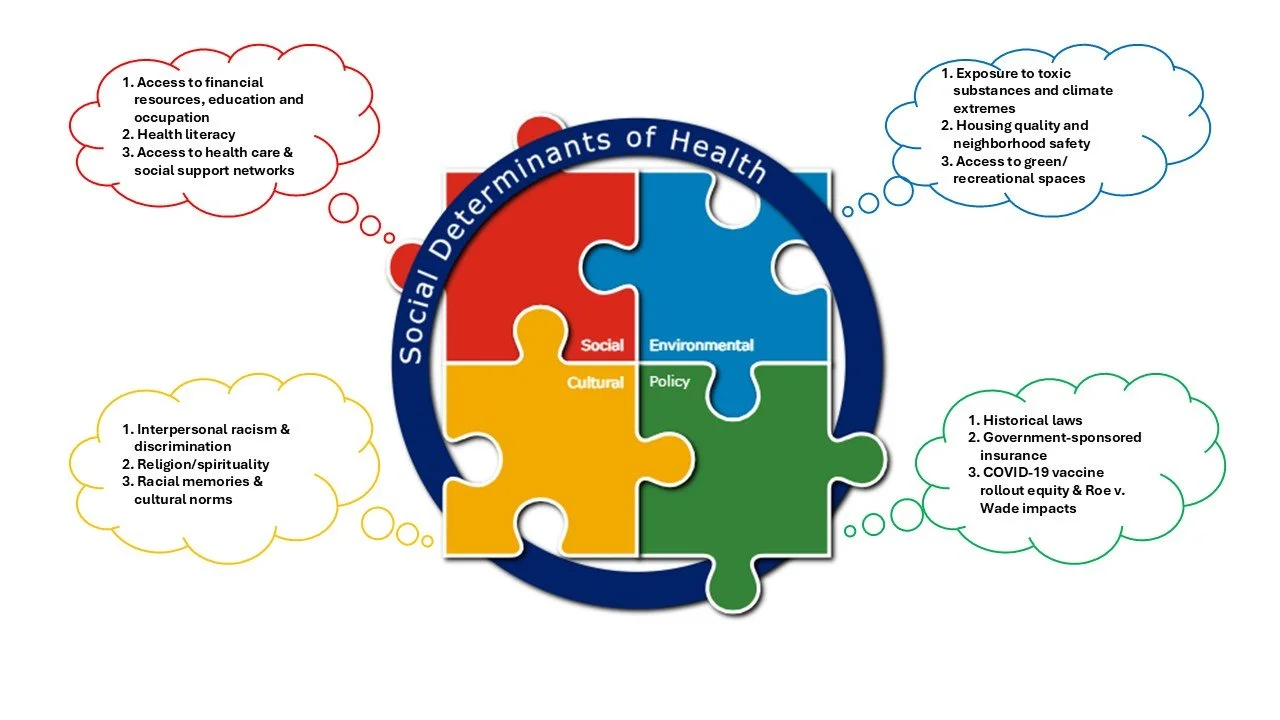Bridging Faith, Culture, and Science to Heal Communities
By Rajib Kumar Biswas
Dr. Jill B. Hamilton, PhD, MRPL, RN
The journey of Dr. Jill B. Hamilton, professor in the Nell Hodgson Woodruff School of Nursing at Emory University, began not in a lab but a church pew. Growing up, she watched a nurse in her congregation arrive at services in her crisp white uniform and cap. “I thought that I wanted to be like her,” says Hamilton. That childhood inspiration led her to nursing. Eventually she found research appealing too when she pursued her master’s at UNC-Chapel Hill.
During a class discussion on health disparities, a faculty member made a sweeping negative statement about African Americans. “I said that it is not true,” Hamilton says. The professor said, “Well, that’s what’s [stated] in the literature.” In that moment, Hamilton felt a deep call to action. “I thought to myself that I am going to change that.”
This experience motivated her to challenge these harmful narratives by conducting research on the cultural and spiritual coping mechanisms used by African Americans. Her work today illuminates the strengths rather than the struggles of health in African American communities. That resolve fueled her pioneering work on Social Determinants of Health (SDOH) – non medical factors that influence life, particularly among African Americans facing chronic illness. Over two decades, she interviewed more than 150 individuals about how religious songs, scripture, and storytelling helped them cope with cancer, highlighting the role of SDOH.
The Nell Hodgson Woodruff School of Nursing Social Determinants of Health (SDOH): modified by Rajib Kumar Biswas.
But Hamilton’s path was not without obstacles. Being a single mother raising a son on the autism spectrum while simultaneously pursuing her PhD was a serious balancing act. “It took me six years instead of four,” she says. The health struggles of her son as a low birthweight preemie deepened her empathy for families navigating systemic inequities. “I have lived the chaos of juggling caregiving and survival. That is why SDOH matters,” she says.
When Hamilton enters a room, she carries both decades of nursing expertise and the momentum of a seismic shift in how the world understands healing. A visionary researcher and educator at Emory University, she has authored over 80 publications and co-edited “Integrating Social Determinants of Health Framework into Nursing Education” (2023) and “Transforming Social Determinants to Promote Global Health: Achieving Equity through Lived Experiences” (2024), seminal works that have redefined healthcare’s blueprint.
Hamilton’s research has been featured in journals like Cancer Nursing and The Gerontologist. It uncovers a truth that medicine often overlooks: cultural practices like Black gospel music and biblical storytelling are not just traditions, they are powerful antidotes to despair that can reduce anxiety and depression in African American communities. “Health is not about treating diseases, it is about seeing the soul behind the symptoms,” she says.
Hamilton played a pivotal role in developing Emory’s SDOH Framework for Nursing Education. The framework prepares nurses to assess and respond to systemic issues such as racism, socioeconomic status, housing instability, and limited access to care that often determine health outcomes long before a patient enters a clinic. Through this model, students are trained not only to recognize these barriers, but to advocate for policy change, engage in community-based interventions, and build culturally responsive care strategies. Whether addressing rural health inequities in Appalachia or structural poverty in sub-Saharan Africa, the framework equips nurses to be agents of equity. It is a shift that starts not in sterile clinical settings, but within communities themselves where healing is deeply rooted in trust, resilience, and lived experience.
Image by cottonbro studio on Pexels
In 2025, Hamilton’s leadership earned her the National Black Nurses Association’s inaugural Luminary Fellowship, recognizing her decades of advancing health equity. “It’s about lifting up work that centers dignity,” she says of the award.
Her influence extends beyond academic circles. Yet Hamilton is not content with research staying in academic journals. “I am packaging my findings into books the public can use,” she says. “If we only talk to scientists, nothing changes.”
Also Hamilton believes that science is more than data, it is a bridge between research and humanity, clinics and communities, struggle and hope. “Every patient has a story, and every story teaches us how to heal better,” she says.
When she is not shaping the future of health equity, Hamilton unwinds in her garden. She grows vegetables and preserves fresh produce – a hobby she calls her therapy. “There’s joy in getting your hands dirty, creating something tangible,” she says.
Her passion for nourishment, both physical and spiritual, extends into her professional ethos, where she remains committed to uplifting communities and mentoring the next generation of health professionals. With over 30 years dedicated to Justice, Equity, Diversity, and Inclusion (JEDI), Hamilton’s work has inspired countless individuals and redefined nursing education.
Her advice for women in STEM is simple yet powerful: “Follow your passion. When setbacks come, just keep going.” She also urges researchers to defend SDOH work amid political pushback. “Some leaders dismiss these factors, but we must keep advocating. Health equity is not optional.”

